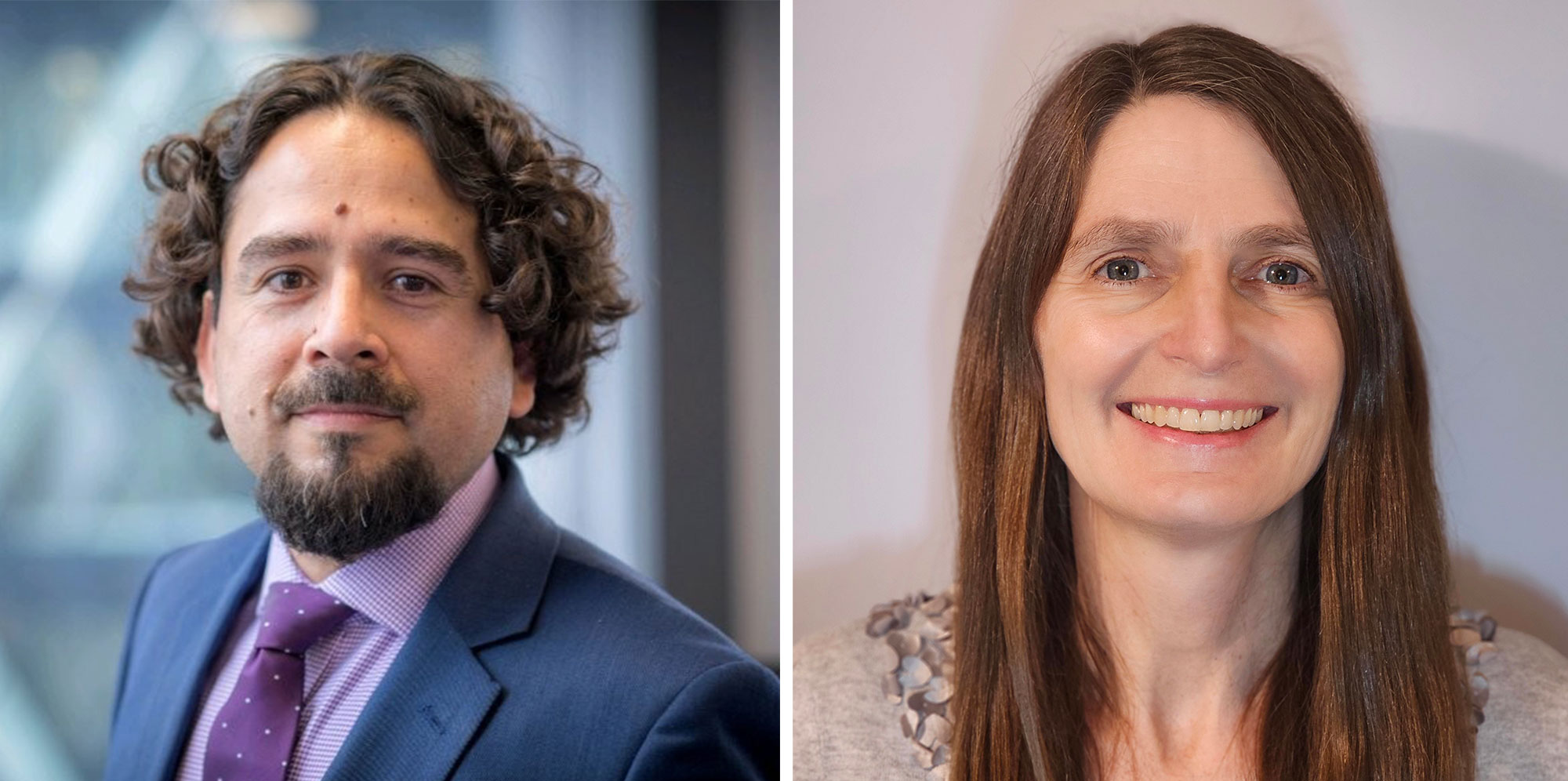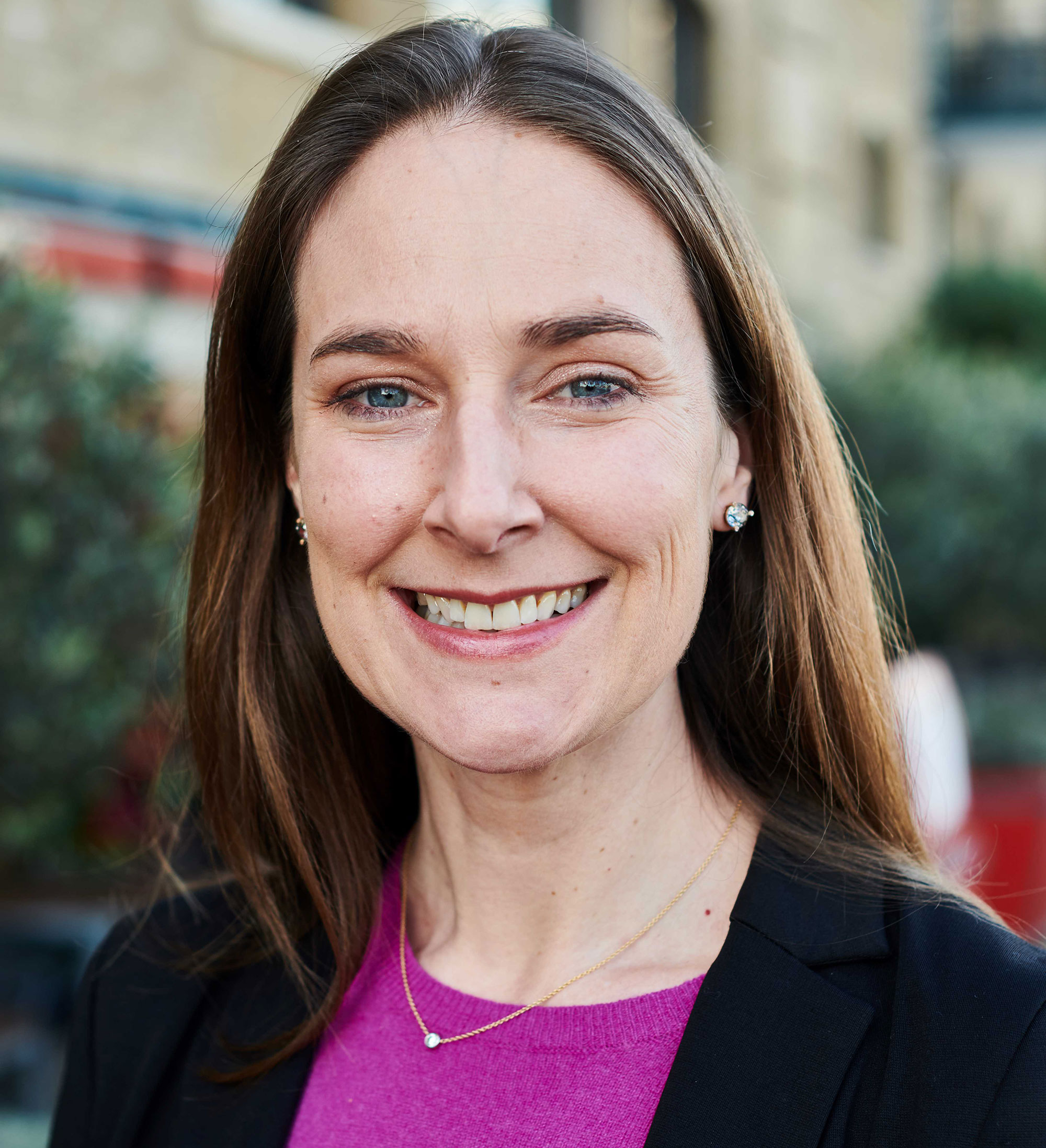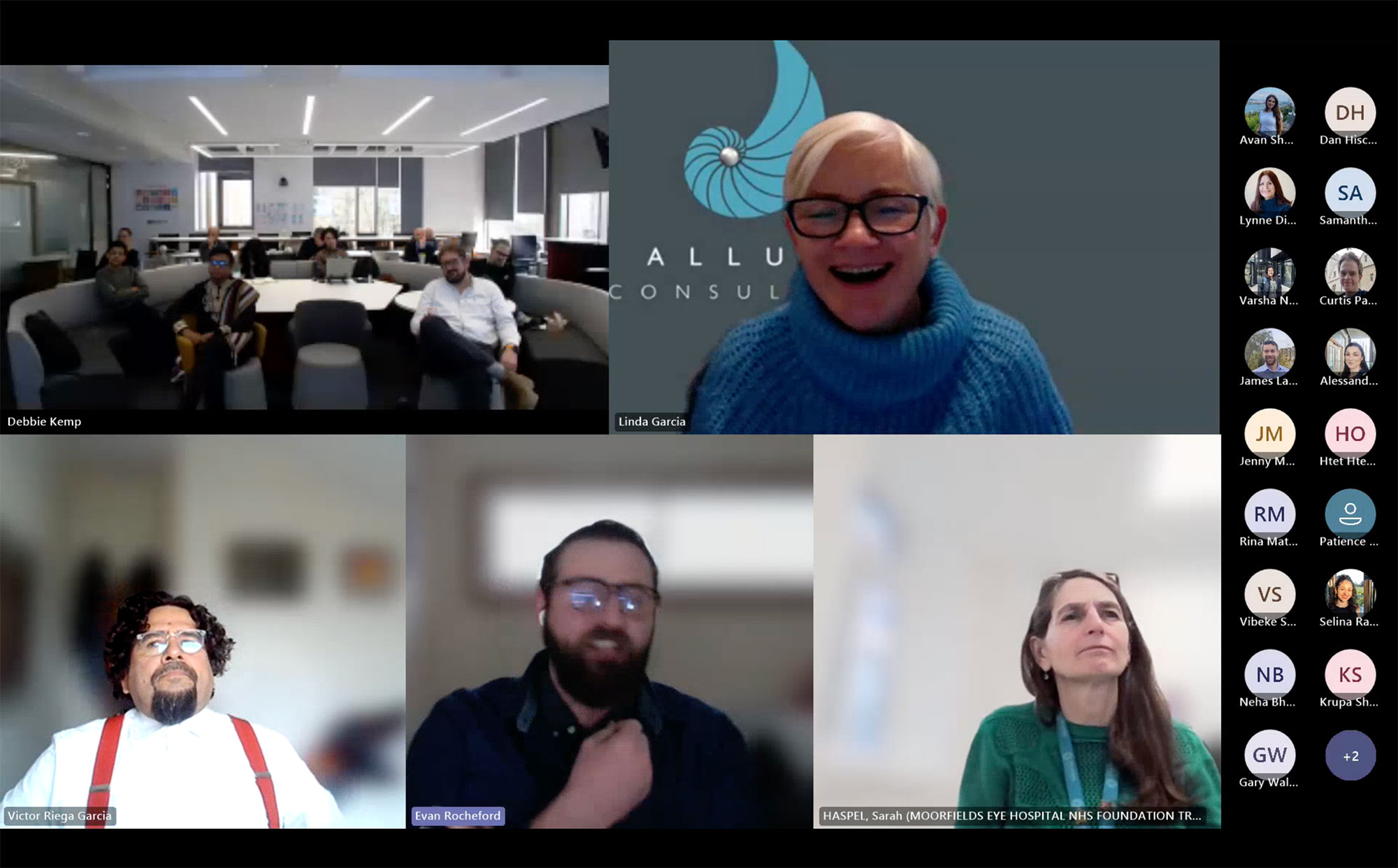At the beginning of December, over 40 people joined a conversation on how to overcome barriers when driving the green agenda in your company, at our first hybrid MBA Guest Lecture and Business Soundbite of the academic year. Some present in the MBA Suite, with others attending online from all over the world. The audience a mix of students, staff, alumni, and businesses from across London and the Southeast.
Four speakers from three different industries shared their experiences and strategies for integrating sustainability, each with a Q&A session at the end. Afterwards, one of the attendees, Higher Degree Apprentice and MBA student, John Benfield gave us his summary of the event along with his main takeaways.
Starting with healthcare and, more specifically, the NHS, Alexandra Hammond was the first speaker up. Alexandra is Associate Director, Net Zero and Sustainable Procurement at NHS England, where she leads the team responsible for delivering a net zero Carbon Footprint Plus for the NHS. She was recognised in 2024 as being the 5th most influential woman in procurement by ‘Procurement Magazine’.
Alexandra emphasised the NHS’s significant role in influencing sustainable practices, especially within supply chains. She highlighted challenges in aligning sustainability with traditional practices, such as infection control, while advocating for solutions like reusable sharps containers. The NHS aims to integrate net-zero goals into contracts with suppliers, requiring carbon reduction plans.
She also shared insights into tools developed to promote sustainability within the NHS, such as net-zero calculators for evaluating carbon savings in product swaps.
Key challenges for the NHS
- Managing the perception of sustainability as being more expensive and aligning it with long-term cost savings.
- Bridging gaps between supply chain capabilities and NHS sustainability goals.
Next up was Evan Rocheford, Co-Founder and CEO of NutraMaize, a Purdue University-affiliated AgBioScience company on a mission to transform the world’s largest staple crop – corn – into a platform for delivering better nutrition for the world’s population through bio-fortified orange corn rich in carotenoids. Evan’s business is also focused on improving animal feed so that, for example, hens produce healthier eggs.
He advocated for sustainable agriculture, emphasising the dual focus on nutrition and reducing environmental impact. Explaining the challenges in transitioning from traditional to regenerative agricultural systems while addressing food security and sustainability, Evan also highlighted the role of innovative practices in reducing reliance on carbon-intensive processes and promoting circular economies in agriculture.
Key challenges for the agriculture industry
- Breeding crops to be more nutritious and deliver the nutrition many people are lacking, particularly in lower- and middle-income areas/countries.
- Leveraging market-driven solutions and technology to create sustainable, scalable agricultural systems.
- Balancing profitability with environmental stewardship by aligning incentives across the value chain.
Following Evan was Victor Riega, a qualified lawyer and sustainability professional with over a decade of experience in Environmental, Social, and Governance (ESG) issues. Currently, Victor works at Rathbones as a Responsible Business Integration Manager.
Victor began his sustainability career as an in-house professional at a UK insurer, tackling a wide array of ESG issues including ESG risk management, governance, and human rights, and reporting. He shared his experience of developing and implementing ESG approaches for financial institutions in banking, asset management, and specialty insurance.
Highlighting the need for clear communication of sustainability efforts to avoid greenwashing, Victor advocated for robust data collection and storytelling to measure and showcase sustainability impacts effectively.
Key challenges for the finance and insurance industries
- Balancing short-term profits with long-term sustainability goals.
- Navigating increasingly complex regulations, such as anti-greenwashing mandates.
- Addressing data quality issues in sustainability metrics and reporting.
- Encouraging cross-departmental collaboration to align ESG goals with business objectives.

Circling back round to healthcare and the NHS, the final speaker was Sarah Haspel, Director of Efficiencies at Moorfields Eye Hospital NHS Foundation Trust. Sarah is one of the people driving the sustainability agenda there, having been in the first cohort to graduate from the ‘Sustainability Leadership for Greener Health and Care’ programme, and more recently been part of ‘Sustainability in Quality Improvement’ with the Centre for Sustainable Healthcare.
Sarah talked about the challenges of getting people to focus on the right things, going upstream and looking at prevention and wellbeing, not just improvements in sustainability around treatment. The next big thing in her agenda is the digital programme of sustainability, with the aim of going paperless in the healthcare industry.
Some final general reflections on the challenges ahead
John feels that these come under four different themes:
- Collaboration: Engaging stakeholders at all levels, from local farmers to policymakers, to create cohesive sustainability strategies.
- Education and innovation: Encouraging digital and technological innovation as enablers of sustainable practices.
- Behavioural change: Aligning organisational culture with sustainability goals to ensure buy-in and long-term success.
- A call to action: The speakers all urged businesses to view sustainability not just as an ethical imperative but as a practical driver of innovation and resilience in the face of global challenges.
This event organised by Sustainability Scholar, Ashish Mahadeo Thakre, Chevening Scholar, Miarizaka Randriamananjara, and Higher Degree Apprentice and Deputy Director (Estates, Facilities and Capital Projects) at Moorfields Hospital, Paul Cartwright is part of the MBA Guest Lecture and Business Soundbite series, which runs across the year covering three main themes: Sustainability in November/December, Diversity/Women in Leadership in March and Entrepreneurship in May.
Our MBA is underpinned by our high-quality research and informed by the global outlook of our international community. It builds on your current experience to transform you into a responsible business leader.




